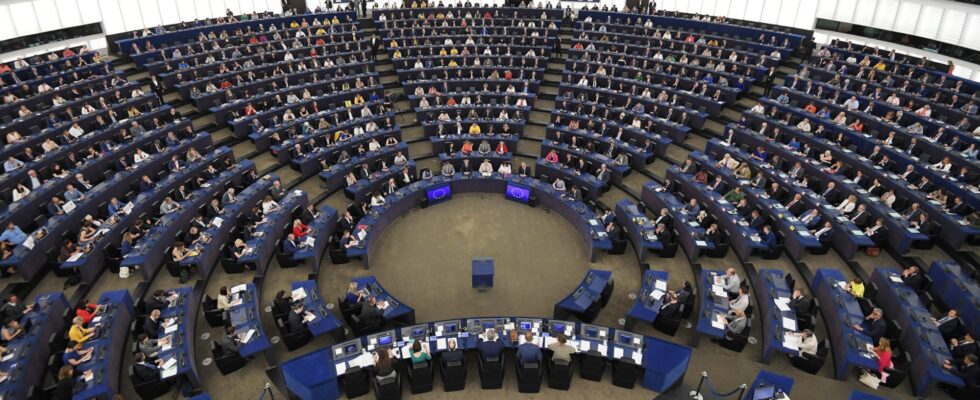EU states and the European Parliament agreed on Wednesday to cap certain Ukrainian agricultural imports exempt from customs duties – eggs, poultry, sugar, oats, corn and honey -, responding to a reason for anger in the sector. The agreement concluded during the night renews for one year, from June, the exemption from customs duties granted since 2022 to Ukraine in the context of the war, but by combining it with “safeguard mechanisms” targeting “particularly sensitive” products, including certain cereals, but not wheat and barley as demanded by MEPs.
The text “provides for an emergency brake for poultry, eggs and sugar”, as well as “oats, corn, groats (preparation of degermed grains, editor’s note) and honey”, specifies the European Parliament in a statement. The mechanism de facto caps the import volumes of these products at the average levels imported by the EU in 2022 and 2023, beyond which customs duties will be reimposed.
“Corrective measures”
European farmers accuse the influx of Ukrainian products of weighing down local prices, particularly in neighboring countries. They accuse these products of being part of “unfair” competition, failing to meet certain standards concerning in particular the size of farms or the use of phytosanitary products. This issue is fueling anger, particularly in Poland, where disgruntled farmers have in recent weeks blocked border crossings with Ukraine, as well as with Germany.
To respond to concerns, the European Commission had proposed renewing the exemption from customs duties, but providing for “remedial measures” that could be quickly adopted in the event of “significant disruptions” in the market, including if this only concerns ‘a single Member State. MEPs voted massively last Thursday to demand the extension of the “capping” to cereals (wheat, barley, oats, corn) as well as honey.
Work to ensure that Ukrainian products return to original markets
MEPs also wanted to calculate the reference period on the average of three years (2021-2023). Agricultural organizations criticized the fact that the cap proposed by Brussels corresponded to the high volumes of the last two years, at the origin of the crisis. The ambassadors of the Twenty-Seven then also opened the door on Monday to limitations on certain cereals.
In final negotiations, “MEPs obtained from the Commission a firm commitment to act in the event of an increase in Ukrainian wheat imports”, specifies the Parliament. And Brussels will be required to act “more quickly, within 14 days instead of 21 days (as initially planned) if the thresholds for triggering the safeguard mechanisms are reached”. “At the same time, work is underway to allow Ukrainian agricultural products to find their original markets to which the conflict had somewhat closed access” in Africa and the Middle East, so that they do not remain blocked in Europe , a French government source insisted on Tuesday.
The Twenty-Seven had relaxed the rules for importing Ukrainian agricultural products as a measure of support for kyiv after the Russian invasion launched in February 2022. Ukraine represents one of the main agricultural powers on the European continent.
